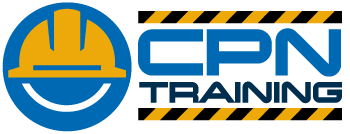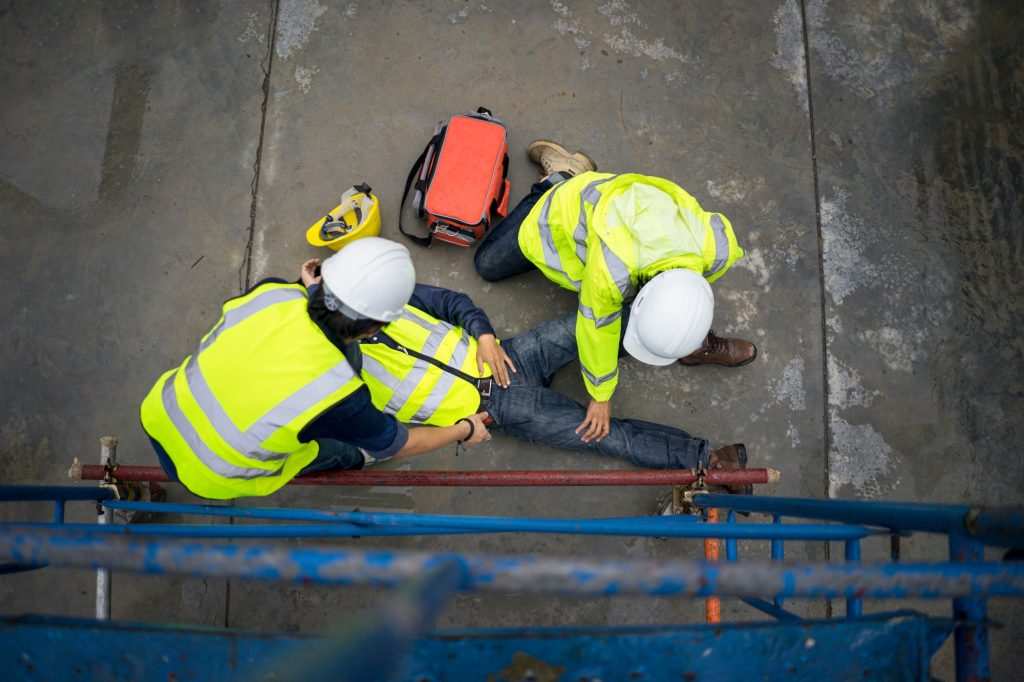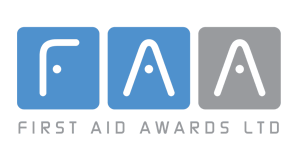Unfortunately, we all know that an accident can happen anytime and anywhere. This includes the workplace. The UK Health & Safety Executive – HSE, requires all employers to undertake a risk assessment of their workplaces and have a first aid box on site. But is it enough? Consider these statistics from the Health & Safety Executive, 2019 – 2020.
- Workers sustaining a non-fatal injury – 0.7 million
- Non-fatal injuries to workers reported under RIDDOR – 65,427
- Work-related ill health (new or long-standing) – 1.6 million
- The number of working days lost due to work-related ill health (32.5 million) and non-fatal workplace injuries (6.3 million) – totalling 38.8 million lost days!
Fatalities at work – 111
Some significant figures there, and your company can do something not to be part of the next round of statistics. Many businesses have had to make substantial changes to workplace environments due to the Corvid-19 pandemic. Working alongside staff trained in first aid has given those companies the edge in stepping up with the necessary precautions.
Trained First Aiders – Making The Workplace A Better Environment
All employers are responsible for ensuring that any employees who become ill or have an accident receive immediate attention before the professional medical personnel arrive. Training first aiders can save lives, time and money.
Keeping The Workplace Safe
First aid training increases staff’s awareness of their environment and what hazards can be present. Increased understanding of safety can reduce workplace accidents and injuries—a plus for everyone.
Alongside making the workplace safer, training first aiders throughout your company sends a clear message to all your employees. It tells them how important their safety and well-being—both physically and psychologically—are to the company.
In addition, providing first aid training throughout your company helps build a more cohesive workforce, knowing you are putting in place resources to keep them safe and healthy. The WHO says a happy workplace is “one where employees and managers collaborate to protect the health, safety and well-being of all employees in the workplace.” A happy workforce is also a more productive workplace.
Training Your Staff In First Aid Will Save Lives
Difficult to count the number of lives saved by having a trained first aider present in your shops, warehouse, offices and schools. Knowing how to perform CPR, correctly handle a severe bleed or react to an unconscious body does save lives.
Completing the appropriate training will give first-aiders in the workplace the ability to,
- Assess the situation quickly and adequately
- Assess the injured person and provide the proper first aid treatment
- Arrange for further help and assistance as required
- Protect themselves and the injured colleague
- Prevent the transference of infection
- Provide comfort and reassurance to the employee and fellow workers
When an accident occurs, be it to an employee, yourself or a customer, having someone who knows how to handle the situation is essential. Unfortunately, people panic in emergencies and the ensuing chaos can often mean that life-saving procedures are not administered quickly enough. Or they are not performed correctly. This scenario is not good for your business, staff or visitors.
Get The Benefits of Having First Aiders In Your Place Of Business
Staff can undertake different levels of first aid training depending on the risk assessment of the workplace. Chat to CPN Training to learn more about first aid training within your premises throughout the UK or at their training facility.
Important to note that first-aiders need refresher courses to keep their skills updated and relevant. Make it part of your Health & Safety Strategy to train staff in first aid and ensure they receive the necessary follow-up training.












